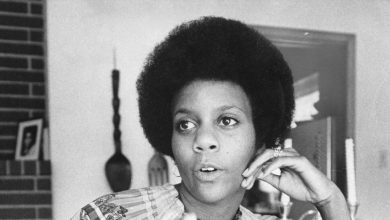Joe Pignatano, Met Coach Known for His Bullpen Farm, Dies at 92

Joe Pignatano, who was a reserve catcher with four major league teams, including the Brooklyn Dodgers, but gained his greatest renown for cultivating a vegetable garden at Shea Stadium when he was the Mets’ bullpen coach, died on Monday in Naples, Fla. He was 92.
His son Frank confirmed the death, in a hospital. He said his father had dementia for the last two years.
Pignatano, known to many as Piggy, had a modest career as a backup catcher with the Dodgers (first in Brooklyn, then in Los Angeles), the Kansas City A’s, the San Francisco Giants and the Mets.
He joined the Mets in 1962, their inaugural season, and batted .232 in 27 games. In his last at-bat as a major leaguer — in the Mets’ final game of the season — he hit into a triple play that began when he lined out to the Chicago Cubs second baseman Ken Hubbs.
He continued to play for two more seasons in the minor leagues before being hired as the first base coach in 1965 by the Washington Senators under Gil Hodges, who had been his teammate with the Dodgers and Mets. After the 1967 season, Hodges became the Mets’ manager, taking Pignatano with him as his bullpen coach.
“Piggy was the kind of friend to my dad who, if you fell backward, he’d catch you,” Gil Hodges Jr. said in a phone interview. “If a player had something negative to say about my father and didn’t have the courage to say it to his face, he’d better be sure Piggy wasn’t around.”
In the bullpen, Pignatano oversaw relief pitchers as they warmed up — sometimes catching them himself — and telephoned Hodges or Rube Walker, the pitching coach, to say who looked good that day and who didn’t.
“He was very disciplined, a good company man who was also still young and pretty feisty,” said Jim McAndrew, a pitcher who joined the Mets in 1968. “He was opinionated about almost everything and wasn’t everybody’s favorite because he was Gil’s sergeant.”
In 1969, the year the Mets unexpectedly won the World Series after seven seasons as a losing team, Pignatano started planting tomatoes in the bullpen beyond right field. Up came cherry tomatoes, then beefsteak tomatoes. Eventually he grew pumpkins, cucumbers, eggplants, squash, zucchini, radishes and lettuce in a 30-foot long plot, with help from the pitchers who watered the plants.
“I transplant the crops in the spring and we have it every year,” he told The Associated Press in 1977.
During spring training in early April 1972, Pignatano, Hodges, Walker and Eddie Yost, another Mets coach, had returned to their motel from playing golf when Hodges had a fatal heart attack.
“Joe always reflected to me that when he saw him put the key in his door and fall, he knew that was it,” Gil Hodges Jr. said. “He fell without bracing himself.”
Pignatano remained a coach with the Mets until 1981, under four more managers: Yogi Berra, Roy McMillan, Joe Frazier and Joe Torre. He coached for Torre with the Atlanta Braves from 1982 to 1984, until they were both fired. He then retired until the mid-1990s, when he coached for two years with the Colorado Silver Bullets, an all-female professional baseball team.
Joseph Benjamin Pignatano was born on Aug. 4, 1929, in Brooklyn. His father, Aniello, was a longshoreman; his mother, Lucy (Esposito) Pignatano, was a seamstress.
Joe wanted to play baseball from a young age. He spent the better part of eight seasons climbing the Brooklyn Dodgers’ minor league system before getting his first taste of the major leagues in 1957, the team’s last before moving to Los Angeles.
Pignatano played a role in the Dodgers’ final home game in Brooklyn. In the fifth inning at Ebbets Field against the Pittsburgh Pirates, he replaced Roy Campanella, a future Hall of Famer, and caught the rest of Danny McDevitt’s 2-0 shutout.
During his time in Los Angeles, where he backed up John Roseboro, he had a highlight moment: In the second game of a tiebreaker playoff series in 1959 against the Milwaukee Braves, Pignatano singled to sustain a rally that led to a Dodger win. That victory sent the team to the World Series, where they defeated the Chicago White Sox.
In addition to his son Frank, Pignatano is survived by another son, Neil; two grandchildren; and a sister, Rose Palmiotto. His wife, Nancy (Romandino) Pignatano, died in 2020.
Frank Pignatano said that his father did not mind being known as baseball’s bullpen vegetable gardener.
“He loved it,” he said in a phone interview. “He came from a family of farmers. Everybody had a little garden in Brooklyn.”
But few if any of the vegetables found their way to the Pignatano home, where he also had a garden. Most of them, Frank Pignatano said, were filched by visiting players and umpires.
In 1974, during a two-year period when the Yankees played at Shea Stadium while Yankee Stadium was being renovated, Pignatano noticed empty patches in the garden when the Mets returned from road trips.
“Bobby Murcer would pick all the ripe vegetables,” he told The Associated Press, referring to the Yankee outfielder. “In fact, the whole Yankee team had a feast. When Murcer was traded to the Giants, he left me a note warning that he would be back.”





